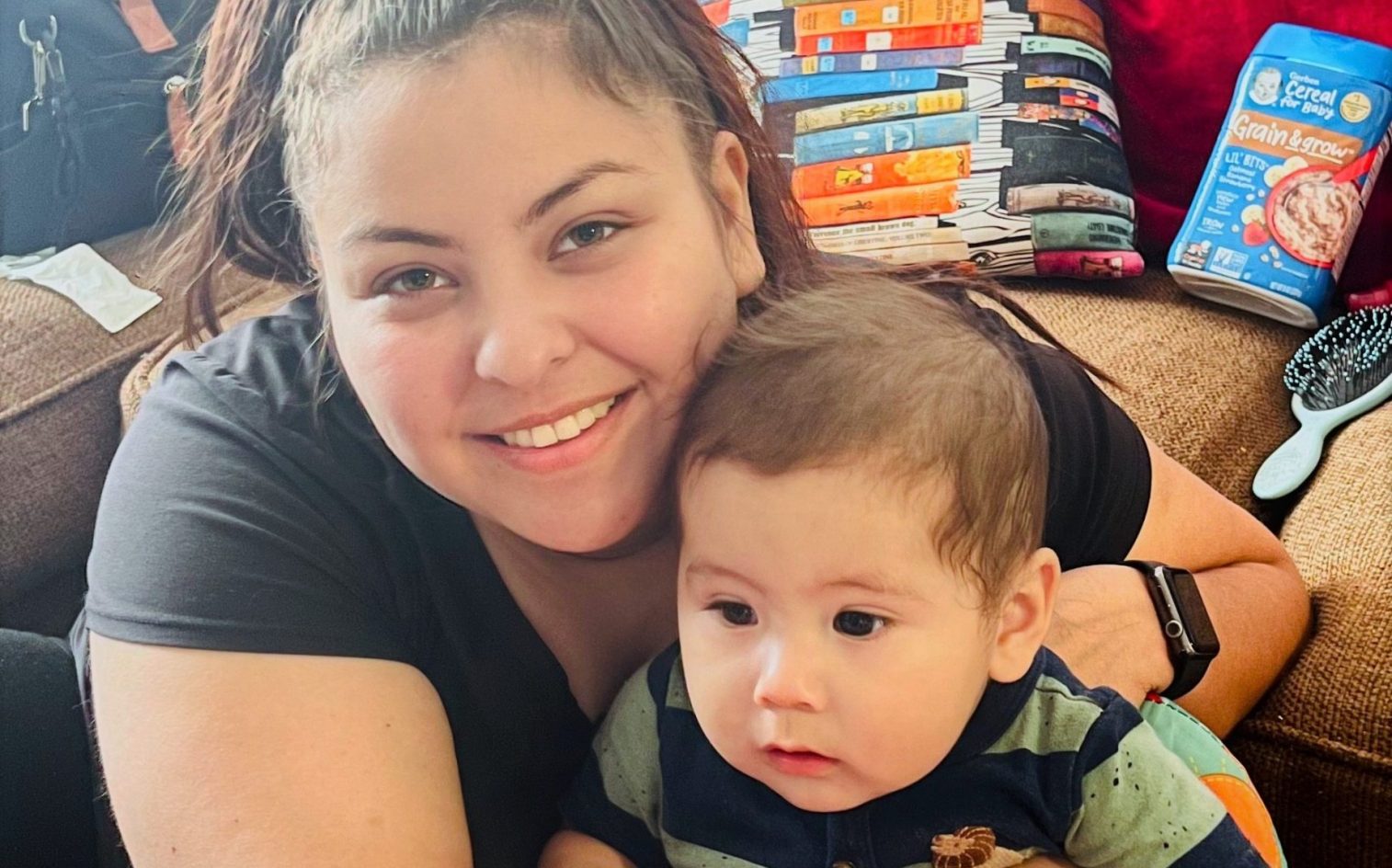Having mental and emotional support when you’re a new parent is important. For Venice Family Clinic patient Brenda, it was crucial.
When Brenda had her third child, AJ, last year, she felt different after the birth from when she had her two previous children. It wasn’t just the “baby blues” – it felt like something much more intense.
Not only was she having trouble bonding with her baby, she was having negative, intrusive thoughts about him that would disturb her throughout the day without warning. The thoughts were so distressing to Brenda that she decided to ask for help.
Fortunately, Brenda had already enrolled herself before AJ was born in Venice Family Clinic’s Children First Early Head Start program, a federal comprehensive early childhood education program for low-income families. So when she started having the disturbing thoughts, Brenda told her home visitor, who referred her to the Clinic’s Infant Mental Health program.
Encouraging strong bonds
Venice Family Clinic’s Infant Mental Health program is part of The Community Connection, which integrates medical care, mental health care and early childhood wraparound services at the Clinic to build better health outcomes for young children and their families. By improving overall health for families with children ages 0-3, The Community Connection hopes to foster economic opportunity and increased resilience for the Clinic’s most vulnerable families so they can ultimately break the cycle of poverty.
The Clinic’s Infant Mental Health program is available to all of our patients with children ages 0-3 and Children First Early Head Start families. Infant mental health focuses on the relationships between very young children and their primary caregivers, as these children are too young to self-regulate their emotional states. Because babies take cues from their parents, infant mental health therapists examine how parents interact with their children and how those actions affect their baby’s well-being.
“The concept of infant mental health is built on the understanding that early relationships have a significant impact on the growth and development of children’s brains,” said Michelle Marlowe, clinical supervisor of the Clinic’s Infant Mental Health program. “There’s an explosion of brain development from ages 0-3, and we want to put those children on the right course for their lives.”
Therapists in the Infant Mental Health program work with the parent and child together, often during home visits so therapists can observe the family in their home environment. Our therapists get thorough developmental histories from the parent, from pregnancy through birth and any significant events in the child’s life, as well as a history of what the parent’s own childhood was like. During sessions, therapists will explore a parent’s reaction to their child, and if needed, help develop a different narrative for that interaction (for example, helping a parent to see that their baby crying is a normal part of their development and not necessarily a reflection on the parent’s ability). Therapists collect all the information to recommend tools, techniques and activities to support healthy attachment and bonding. Therapists may also connect parents to community resources for extra support.
“We want them to feel like they have the tools they need to be the parent or caregiver they want to be, even after our therapy sessions end,” Marlowe said.
Marlowe explained that issues such as postpartum depression, post-traumatic stress and intergenerational trauma could make it difficult for new parents to form the close bond they hope to have with their child, and that these situations are more common than people may think. For example, 1 in 7 women experience postpartum depression, according to the American Psychiatric Association.
Having the tools
Brenda was having difficulty connecting with AJ. He was extremely fussy during feeding and nap times, and she struggled to soothe him. The stress of these interactions made it hard for Brenda to develop the bond she wanted to have with her baby, and it impacted her mood and ability to manage daily life.
Therapist Alba Sanchez reassured Brenda that what she was experiencing wasn’t uncommon, even among parents who have had multiple children.
“After giving birth, there’s a fulcrum shift in your life,” Sanchez said. “So much is happening all at once, and intrusive thoughts can happen, usually when the parent is really stressed or overwhelmed with the demands of parenthood.”
Sanchez helped Brenda identify the triggers for the negative thoughts she was having and gave her coping strategies to combat them, including mindfulness and grounding techniques. Sanchez also helped Brenda learn how to pay better attention to the expressive and emotive needs of her child. Importantly, these sessions gave Brenda the space to process the changes in her life.
“Alba would see how I was with AJ and would suggest that he liked being held a certain way or that he needed a different nipple size for his bottle,” Brenda said. “I would explain to her things that would happen to me throughout the week, and Alba helped me to see that anyone, not just a postpartum mom, could have these kinds of feelings.
“Before working with Alba, I had been feeling frustrated. But now, I feel relief. I have physical support at home but not emotional support, and being able to speak to someone else has made it a lot easier,” Brenda said.
Feeling empowered
Brenda and Sanchez started with weekly sessions in February and continue to meet every two weeks at Brenda’s home. AJ is now 7 months old and is starting to move a lot more. His mother recognizes that “he wants to be free” and helps him walk and takes him outside more often. He likes when his sisters sing to him, too.
“I feel a lot better now,” Brenda said. “I have more patience in understanding and figuring out what AJ wants. The sessions with Alba have helped my relationships with my other children, too. I can now respond better to what each of my children needs.”
